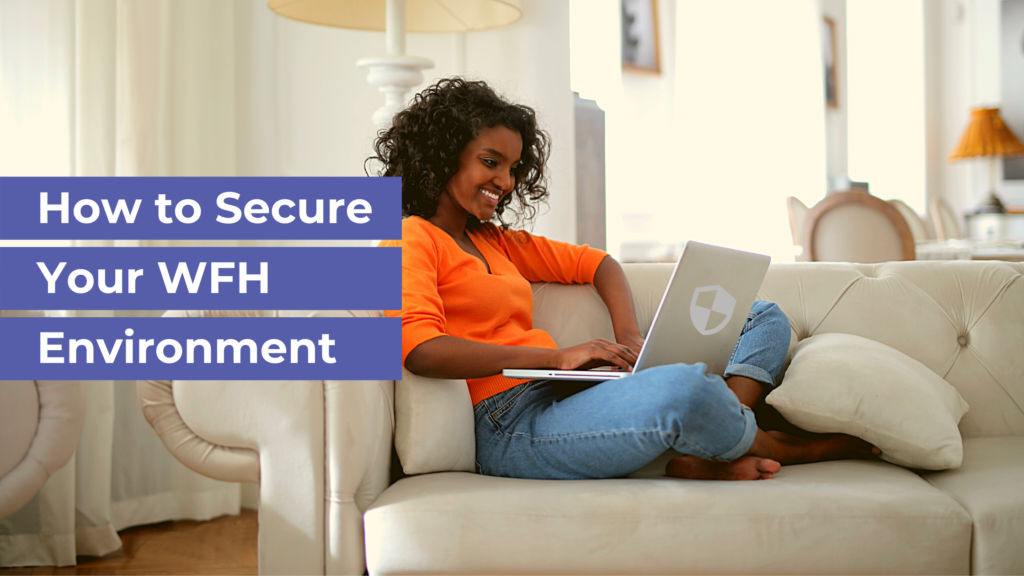How to Secure Your WFH Environment
Important tips to ensure a secure work environment, prevent data theft and hacking attempts.
How many times you have been instructed to keep your password strong? We used to get this kind of messages quite often while setting our profile on different portals even before pandemic but as it’s a usual process, we still tend to set a weaker password if the website allows us to do so.
The situation is same with us but condition in the market has changed, even your personal computers and mobiles are at high risk. We are fighting with the corona virus which everyone knows but at the same time, we are fighting with the dark web too. Most of you might know about the increased risk during pandemic to get hacked and lose your data or money.
The scenario in your office is different:
Office networks are protected by firewalls and strong security protocols. When you work from office, you can be assured of protection against any malware or virus affecting your system.
Office environments are less prone to hacking attacks and data theft as the security is high. The data that you share over network is encrypted and transferred only through secured channels.
Even during the pandemic, many network administrators and IT Technical staff had to continue working from office, so they can securely access the admin controls of their respective systems from a secure environment, without the risk of exposure.
What changes when you work from home?
Work from Home has been made to sound easy, all you need is a laptop and a Wi-Fi connection, and you are all set. But is that enough to keep you safe?
Most Home Wi-Fi networks are encrypted but still work on shared IP. The firewall and security protocols that we enjoy in our office environments are not available on the home network. Any connections we make are susceptible to hacking attacks and data theft.
Yes, we are not as secured working at home compared to working at office and this is the right time for the hackers to take benefit out of it, hack network, emails and even websites which allows to use low or medium strength password.
We really must be extra careful while working from home on what we share and how we share, what sites we open and have our machine more secured.
How can you protect yourself?
There are multiple ways in which you can secure your internet access from home:
1. Use a VPN:
Virtual Private Network (VPN) are either provided by the company or you can subscribe for one, on your own. A VPN establishes a secure connection with the requisite security and firewall protocols to a secured server and it allows you to browse and share information through these secured channels.
VPN reduces the risks and exposure of your data and ensure that you can surf the internet with ease, even from home.
2. Follow a strong password regimen:
Keeping a strong password is like having a habit of flossing every night before you go to bed. It keeps you protected from unwanted threats. If you have noticed, banking websites and apps need you to set alphanumeric passwords with special characters and they are required to be changed periodically.
Use a similar method to create passwords for your other utilities and accounts. Change them often and do not share them over chat, WhatsApp or email with anyone.
Most often, people have a habit of using 12345 or their date of birth as their password. Which are the most susceptible in today’s world.
3. Follow a strong data policy:
In most teams that are now working virtually, sharing of passwords over common email IDs and sometimes even on personal IDs is common. This is a highly risk activity which needs to be curbed immediately.
Use a cloud server to store and share important data which can be accessed by only those who have permissions. Split sensitive information in 2 or more emails while share with groups or team members.
4. Practice Access Control:
As mentioned earlier, most network admins and IT technical staff access their network from the office environment only. You should follow a similar process, Ensure no employee can access your systems back-end from home or outside your office. Provide a dedicated VPN to your important roles like system admins, Staff admins and other critical users. It brings down the risk on your security, considerably.
As a technology company, we are keeping an eye on all latest developments on this part of process and we always like to ensure we are taking right steps to secure our customer’s data.
We ensure the right processes and algorithms are used to have encrypted data storage and security is at its highest. Taking precautionary steps doesn’t mean the system is vulnerable but it means you are aware what needs to be done and how it needs to be done.
Remember, the world is moving so fast in security, that something which is 100% secure can become most vulnerable on very next day!
Stay safe not only from corona virus, but also from such kind of hacking and viruses too.




